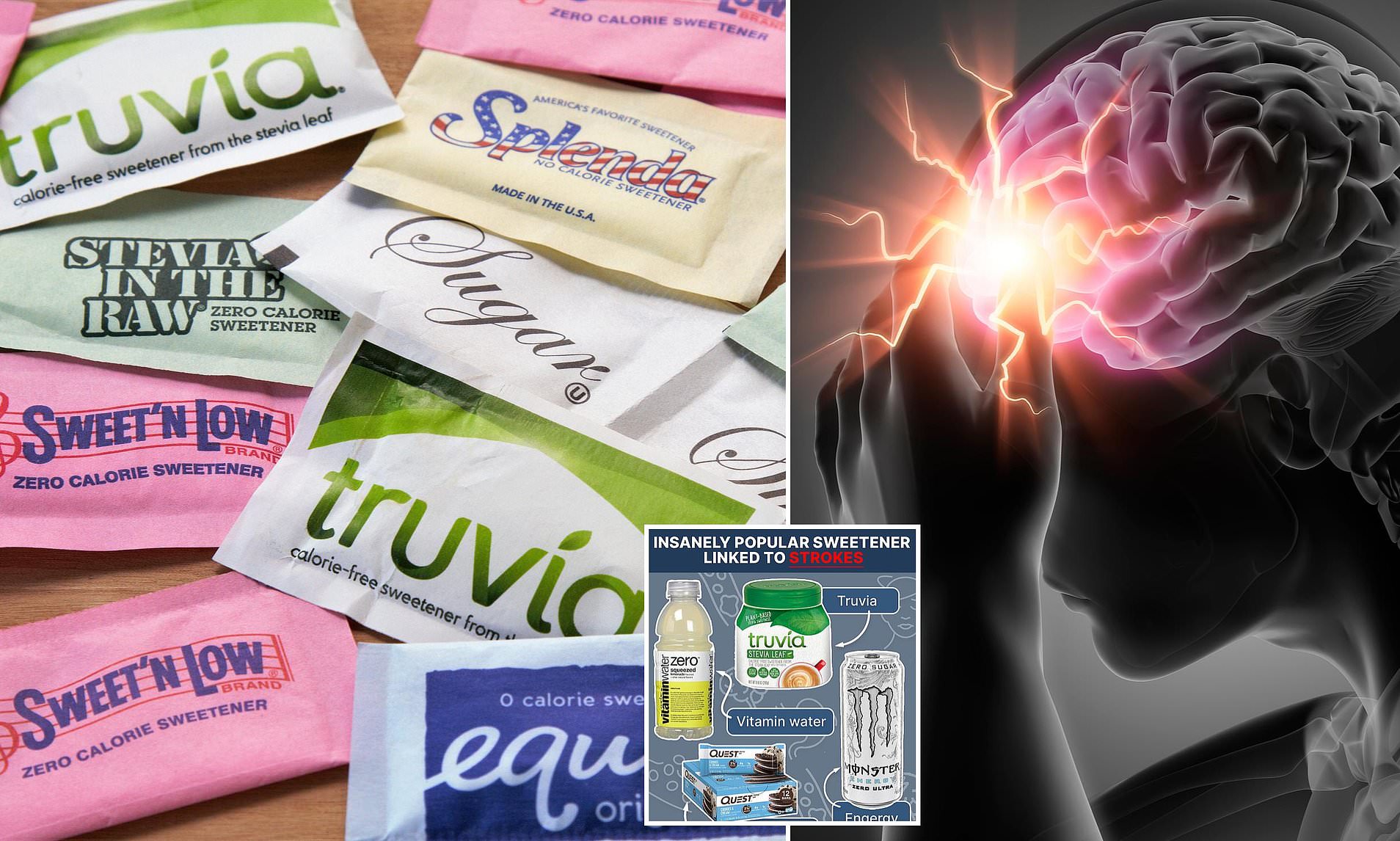
Emerging Concerns Around Erythritol and Its Health Impacts
Artificial sweeteners have long been marketed as a healthier alternative to sugar, particularly for those looking to manage weight or control blood sugar levels. However, recent research has raised alarming concerns about the potential health risks associated with one such sweetener—erythritol. Found in a wide range of products including low-calorie ice cream, protein bars, and flavored waters, erythritol is now under scrutiny for its possible links to increased stroke risk, brain damage, and other serious health conditions.
The Science Behind the Risks
A study conducted by researchers at the University of Colorado has uncovered new evidence suggesting that even small amounts of erythritol could lead to inflammation and increased blood clotting. This, in turn, may elevate the risk of cardiovascular events such as heart attacks and strokes. The research involved exposing human brain cells to erythritol at concentrations similar to those found in a standard sugar-free drink like Vitaminwater or Monster.
Within just three hours, the brain cells exhibited signs of inflammation and a heightened tendency to form clots. Additionally, they produced significantly less nitric oxide—a molecule crucial for relaxing blood vessels—and more proteins that cause blood vessels to constrict. These findings indicate that erythritol may interfere with the body’s ability to regulate blood flow and prevent clot formation, both of which are critical for maintaining cardiovascular health.
Oxidative Stress and Long-Term Consequences
The study also revealed that erythritol-treated cells generated more free radicals—unstable molecules that can damage DNA and contribute to oxidative stress. Oxidative stress has been linked to a range of chronic diseases, including heart disease, dementia, and cancer. While the research was conducted on brain cells in a controlled laboratory setting, the implications for human health are significant.
Professor Christopher DeSouza, a vascular health specialist leading the study, emphasized that these findings add to a growing body of evidence suggesting that non-nutritive sweeteners, often labeled as “safe,” may carry hidden health risks. He warned that individuals who regularly consume multiple servings of erythritol through diet drinks, protein bars, or low-calorie desserts could be at higher risk.
Regulatory Approval and Widespread Use
Erythritol was first approved by the U.S. Food and Drug Administration (FDA) in 2001. It is typically produced by fermenting corn and is used as a low-calorie sugar substitute in hundreds of products. Unlike traditional sugars, erythritol is not metabolized in the same way, meaning it contains virtually no calories. This has made it a popular choice among dieters and people with diabetes seeking to manage their blood sugar levels.
However, the body also produces erythritol naturally in small amounts. Experts warn that consuming high levels of the sweetener through processed foods and natural sources like fruits and vegetables could push levels into potentially dangerous territory.
Broader Implications and Ongoing Research
While the current study focused on brain cells in a lab environment, the researchers acknowledged that further research is needed to confirm whether these effects translate to the human body. Critics argue that many studies on artificial sweeteners are observational and cannot definitively prove causation. They highlight the need for more comprehensive, long-term studies to fully understand the risks associated with these substances.
Concerns about artificial sweeteners have been growing for years, especially as more evidence emerges suggesting they may not be as harmless as once believed. In 2023, the World Health Organization classified aspartame—another widely used artificial sweetener—as "possibly carcinogenic to humans." However, the agency noted that the risk was only significant for those consuming extremely high amounts.
Additional Health Risks
Beyond cardiovascular issues, some studies have suggested that artificial sweeteners may also impact developmental health. For example, Taiwanese researchers have warned that children who consume diets high in sweeteners may be at greater risk of reaching puberty earlier. This condition, known as central precocious puberty, has been linked to an increased risk of depression, diabetes, and even cancer.
In addition, rising rates of heart disease among younger populations have raised alarms. In the UK, around 21,975 people die from heart disease each year, with nearly 420 working-age individuals losing their lives weekly. In the United States, cardiovascular disease remains the leading cause of death, claiming nearly 1 million lives annually.
Final Thoughts
As the scientific community continues to explore the long-term effects of artificial sweeteners, consumers are encouraged to remain informed and cautious. While these substances may offer short-term benefits, the potential health risks highlighted in recent studies suggest that moderation and careful monitoring are essential. Further research is needed to fully understand the impact of erythritol and other artificial sweeteners on human health.


Posting Komentar